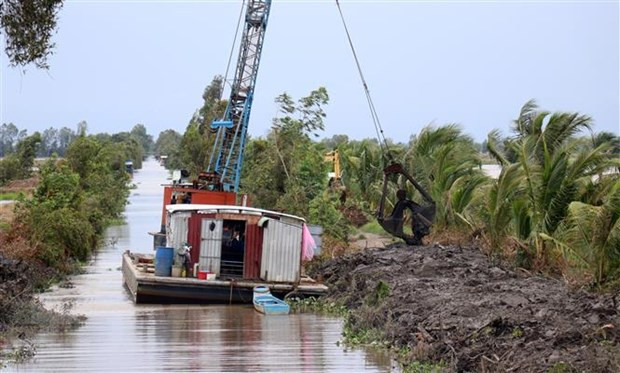The ambassador expressed her delight to be back to the Mekong Delta, following her visit in December 2020, saying it’s a wonderfulopportunity for her to reconnect with the people and the environment in theregion, and to see some of the chances that have been taking place in the pastyear.
She noted that Australia has invested 650 millionAUD in projects in the region since 2000 like Cao Lanh and My Thuan bridges, along withothers in agriculture and climate change adaptation.
“At the moment, we are focusing on projects whichlook at maintaining productivity and environmental resilience because we knowthat this is vital to the Mekong Delta’s ability to adapt to a changingclimate, and to preserve food security, sustainability and development in thefuture,” the diplomat said.
She added that Australia has a number of interestingprojects underway, including one connecting aquaculture farmers to enhance productivityand profitability, helping them maximise productivity.
Another is in the Tram Chim National Park in Dong Thap province, she said,further explaining that it is informed by the AI and high technology solutions,which are geared to supporting sustainable environmental management in thepark.
The ambassador also highlighted the Mekong-AustraliaPartnership, worth 232 million AUD over four years across all Mekong countries,and support through the Australian Centre for International AgriculturalResearch (ACIAR), which has been focusing on the Mekong Delta for almost 30years, and collectively invested 23 million AUD in 20 collaboration projects.
 Mekong Delta provinces have been working together on shared solutions to climate change. (Photo: VNA)
Mekong Delta provinces have been working together on shared solutions to climate change. (Photo: VNA)“This will be really important to connectgovernment, business and community so that all can work together to identifywhere the challenges are and to work out sustainable and shared long-termmitigation strategies,” she said.
The ambassador expressed a hope that the governmentwill take forward its plan for an integrated response, stressing that Australiawill look for opportunities that match its existing support once the plan isadopted. /.




























